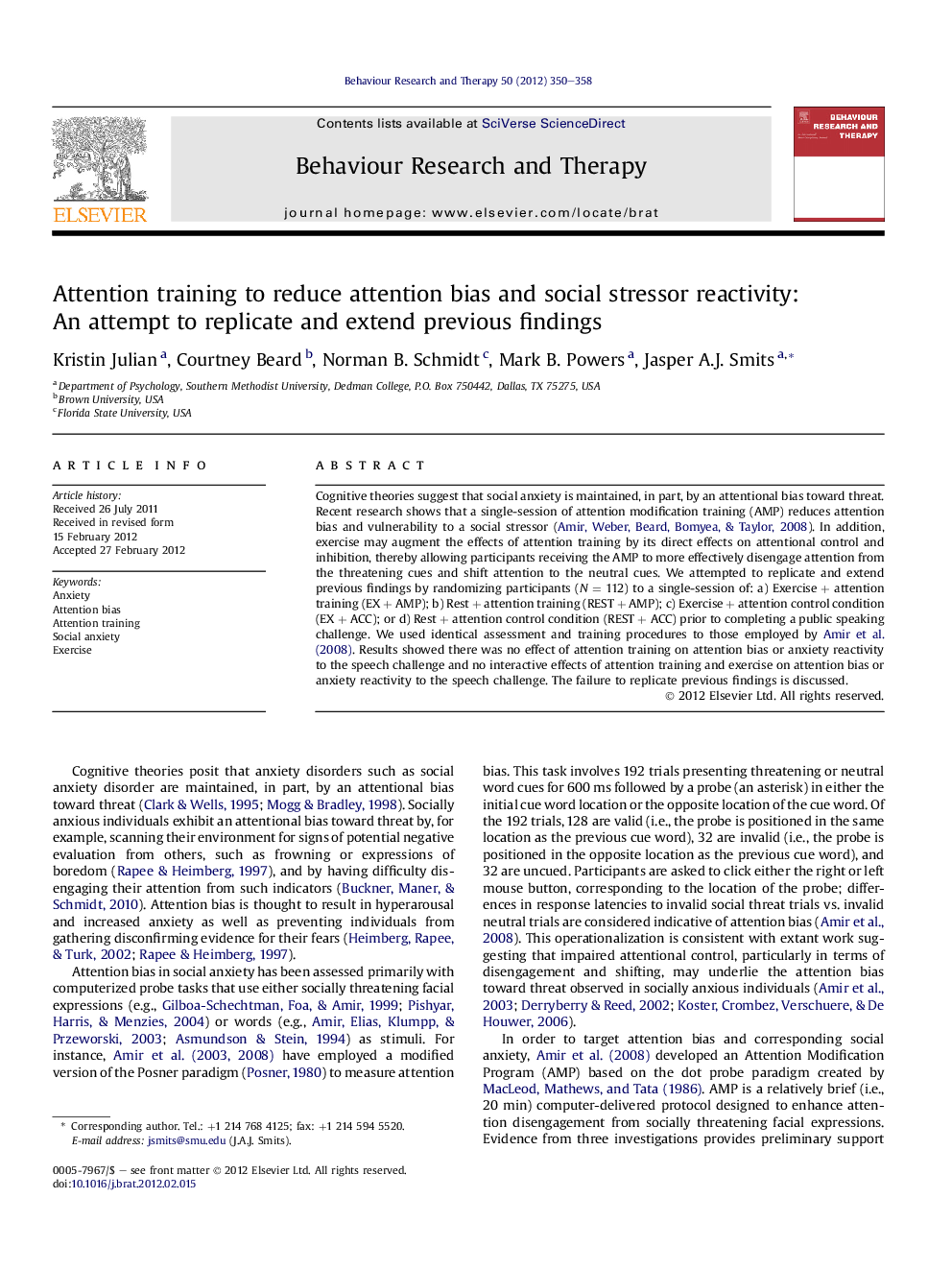| Article ID | Journal | Published Year | Pages | File Type |
|---|---|---|---|---|
| 901994 | Behaviour Research and Therapy | 2012 | 9 Pages |
Cognitive theories suggest that social anxiety is maintained, in part, by an attentional bias toward threat. Recent research shows that a single-session of attention modification training (AMP) reduces attention bias and vulnerability to a social stressor (Amir, Weber, Beard, Bomyea, & Taylor, 2008). In addition, exercise may augment the effects of attention training by its direct effects on attentional control and inhibition, thereby allowing participants receiving the AMP to more effectively disengage attention from the threatening cues and shift attention to the neutral cues. We attempted to replicate and extend previous findings by randomizing participants (N = 112) to a single-session of: a) Exercise + attention training (EX + AMP); b) Rest + attention training (REST + AMP); c) Exercise + attention control condition (EX + ACC); or d) Rest + attention control condition (REST + ACC) prior to completing a public speaking challenge. We used identical assessment and training procedures to those employed by Amir et al. (2008). Results showed there was no effect of attention training on attention bias or anxiety reactivity to the speech challenge and no interactive effects of attention training and exercise on attention bias or anxiety reactivity to the speech challenge. The failure to replicate previous findings is discussed.
► We attempted to replicate a previous study of attention training for social anxiety. ► We used a comparable sample and identical methods to the Amir et al. (2008) study. ► Attention training did not reduce attention bias or reactivity to social stressor. ► Aerobic exercise did not augment the effects of attention training. ► The findings emphasize the continued need for replication and guide future work.
